Down but Not Out
History teacher pushes through medical diagnosis to live life to the fullest.
History teacher Samuel Riley was born Aug. 1, 1977, in West Covina, Calif., a town on the outskirts of Los Angeles. In his early years, Riley moved around a lot; in the second grade he had attended six different schools, but eventually settled down in Kennedale. He then became an honor roll student, even reaching the top 10% of his high school class. Growing up, Riley said he played pretty much every sport he could. And as he grew up, he combined his thirst for knowledge and his love of sports to lead him to his career path.
Riley has been teaching for 21 years and coached for a portion of that and said he plans to finish his career here.
“I’ll say that the one thing that I miss most about coaching was the coach’s office and the relationships,” Riley said. “It’s hard to get a relationship like a coach-on-player when you’re only in here for one block.”
After high school, Riley had the opportunity to pole vault at Texas Tech on scholarship but he declined the offer to go play football and baseball at MidAmerica Nazarene University, a college in Olathe, Kan. When Riley was trying to figure out what career path to take after college, he was reminded of an influential teacher from his past.
“He was this older guy,” he said. “It wasn’t like you know, a young coach or anything like that. He was this old guy. I’ll never forget, he pulled me outside and he told me I was acting like a (jerk). And if you want to be treated like a man, you need to start acting like a man. And I was like, I want to be that guy. And I’ve carried that phrasing with me for 21 years now.”
Post college, Riley went on to play football in Sweden, Denmark and Norway. Then he came back to play in the states on the Arizona Rattlers, a professional indoor football team, when he had a career-ending shoulder injury. He had dreams of pursuing a head football coach position, but decided to change to teaching.
“I wanted to, but then I started having kids, and I liked being called dad,” he said. “So I wanted to be around for the boys and help coach their sports teams. We’re even starting flag football this year, so I’ll be coaching that.”
During his football career, Riley was diagnosed with cavernoma, which is a cluster of abnormal blood vessels, usually found in the brain and spinal cord.
“My brain scans looked like a paintball gun had been shot against the back of my skull,” Riley said. “It’s a bunch of blood vessels that get together and make like a bunch of spaghetti that kind of gets all mushed up there.”
Riley said he lives his life differently because of his diagnoses.
“At any moment It could explode and I’ll be done,” he said. “And I’ll collapse and we’ll call it a day. But it’s kind of cool because I live my life in a different way because of it.”
These days Riley teaches AP world history, AP psychology and AP European history. He said being a teacher has given him the opportunity to be a role model to many students.
“He was there for me when I needed him last year,” junior Maverick Risinger said. “He is so much more than just a teacher: he is a role model.”
Not only does he influence his students, history teacher John Moon said Riley is a solid mentor for teachers too.
“He’s hands down the best mentor I have ever had,” Moon said. “When it comes to the Army, teaching, life…it doesn’t matter: he is the best.”


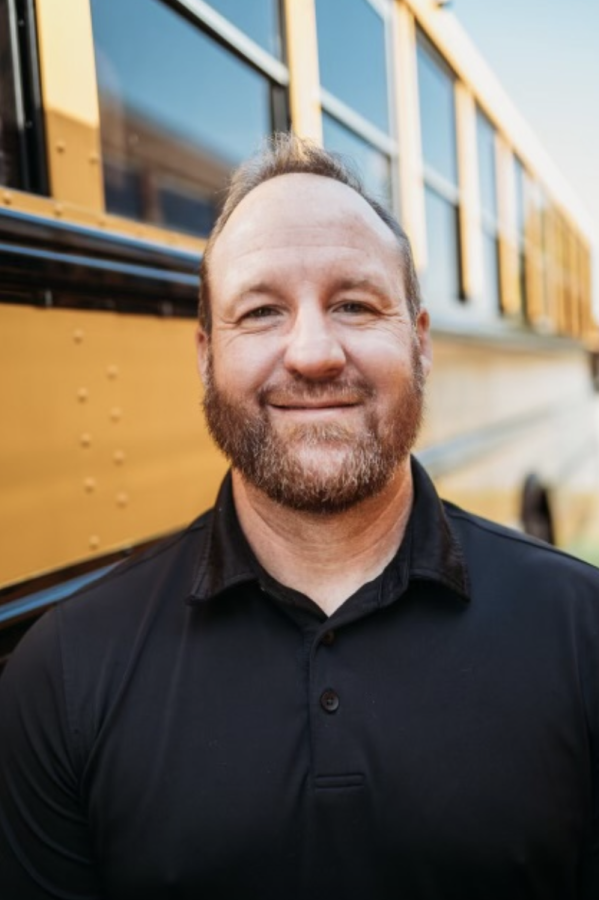
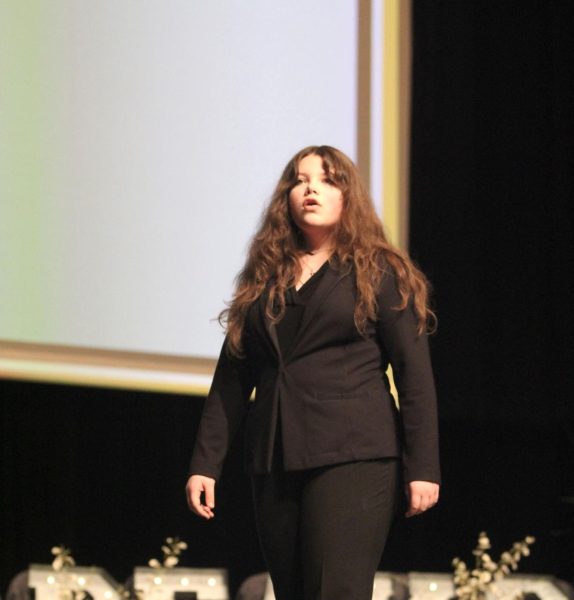
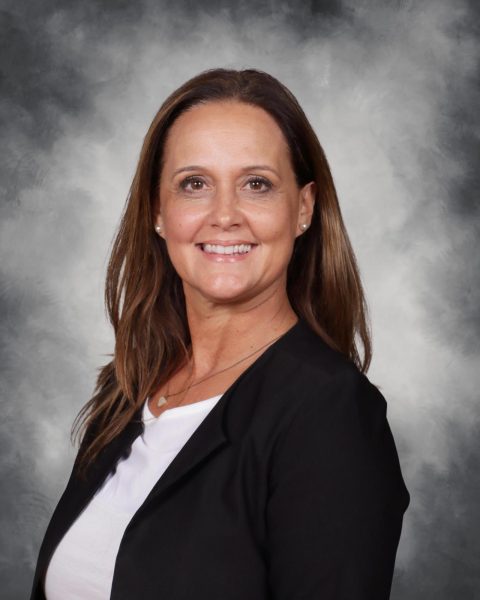
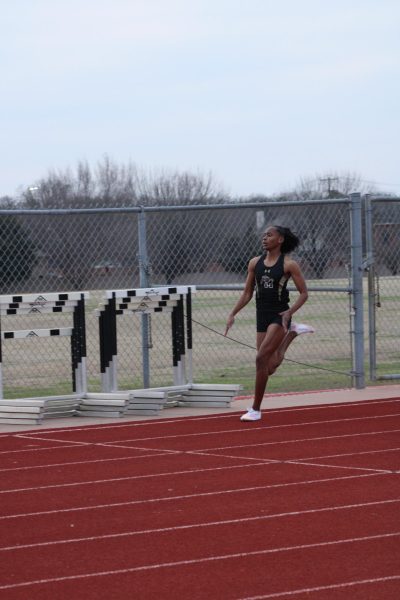
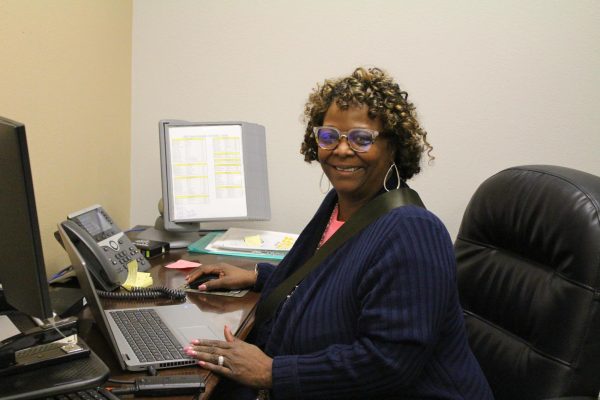
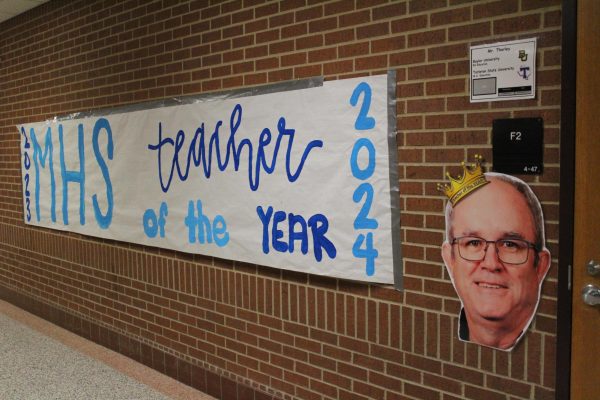
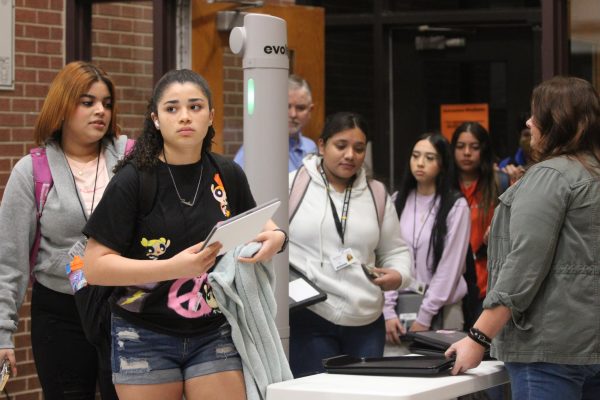



Coach Trantham • Sep 26, 2022 at 8:39 pm
Once again Sam you make the Wildcat Proud, I’m lucky to have see both sides of you… I love brother
Carla Fults • Sep 26, 2022 at 2:35 pm
Amazing story !!! Very uplifting !! What a character model for his boys and family to be so proud of . And of course his chosen profession : teaching …. A giver of one’s whole heart ❤️!! ?
Bonnie Cambria • Sep 26, 2022 at 1:43 pm
Sammy, I had no idea about a lot of things in this article! Didn’t know you were over seas in a football league or in a league in Texas. I also didn’t know you were diagnosed with a pretty traumatic disease. My heart goes out to you and your family as you confront each day ahead of you. I always knew you were a strong boy, but I realized you have become an even stronger man! Your parents would be very proud of you! I wish that they could both be here in person to see that! Much love and lots of prayers will always be coming from me, as I think of you often. Bonnie Cambria.